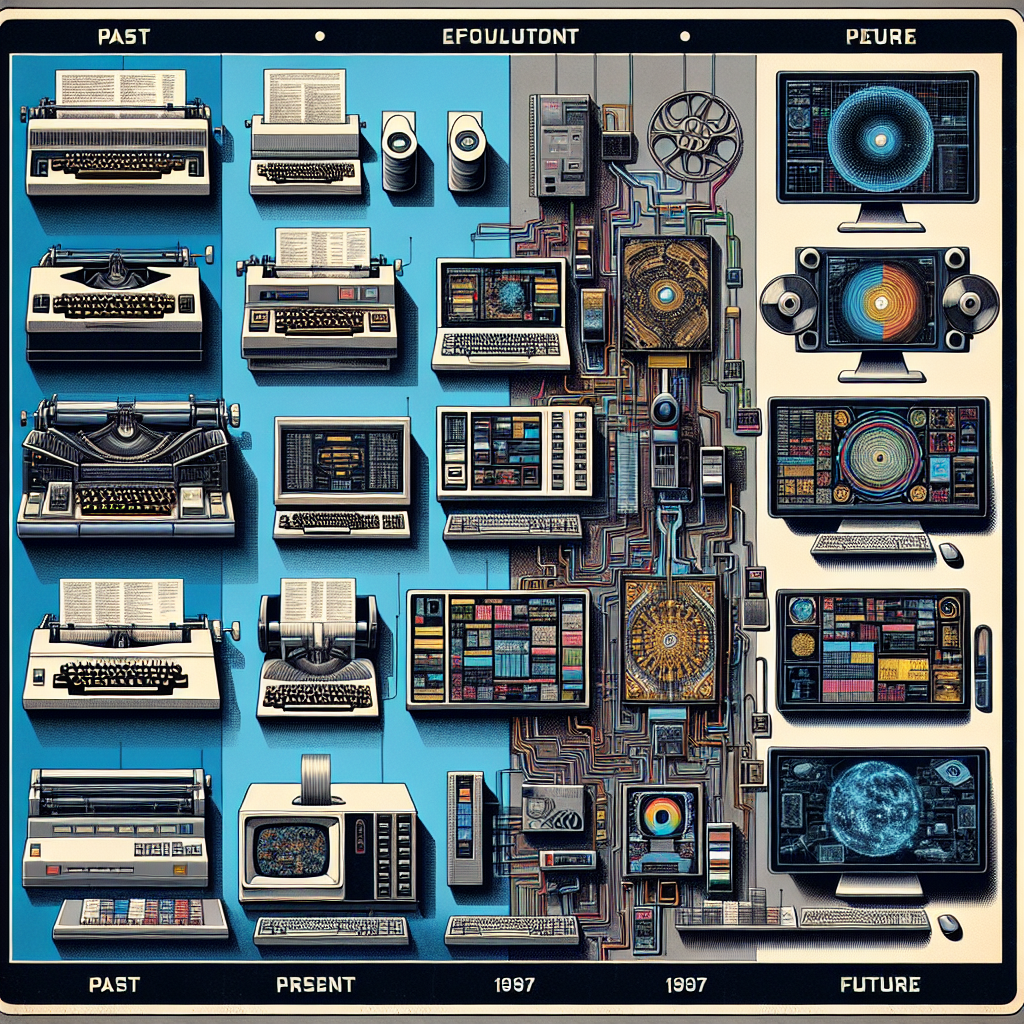The Evolution of AI Platforms: Past, Present, and Future
Artificial Intelligence (AI) has come a long way since its inception in the 1950s. What started as a concept in science fiction movies has now become a reality, with AI being integrated into various aspects of our daily lives. One of the most significant advancements in AI technology has been the development of AI platforms, which have evolved over the years to become more sophisticated and powerful. In this article, we will explore the evolution of AI platforms from the past to the present and speculate on what the future holds for this rapidly expanding field.
The Past: Early AI Platforms
The early days of AI saw the development of basic AI platforms that were primarily used for research purposes. These platforms were limited in their capabilities and were mostly used for simple tasks such as playing chess or solving mathematical problems. One of the most famous examples of early AI platforms is IBM’s Deep Blue, which famously defeated world chess champion Garry Kasparov in 1997.
During this time, AI platforms were mostly developed by large tech companies and research institutions, as the technology required to build these platforms was expensive and complex. The algorithms used in these platforms were also relatively simple compared to the sophisticated deep learning algorithms used in modern AI platforms.
The Present: Advanced AI Platforms
In recent years, AI platforms have become much more advanced and powerful, thanks to advancements in technology such as big data, cloud computing, and deep learning. These platforms are now capable of performing complex tasks such as natural language processing, image recognition, and autonomous driving.
One of the most popular AI platforms in use today is Google’s TensorFlow, which is an open-source machine learning library that allows developers to build and train AI models. TensorFlow has been used in a wide range of applications, from healthcare to finance to self-driving cars.
Another popular AI platform is Microsoft’s Azure AI, which offers a suite of AI tools and services that can be easily integrated into existing applications. Azure AI includes services such as speech recognition, text analysis, and computer vision, making it a versatile platform for developers.
The Future: The Next Generation of AI Platforms
As technology continues to advance, the future of AI platforms looks promising. One of the key trends in AI development is the move towards more specialized AI platforms that are tailored to specific industries or applications. For example, there are now AI platforms specifically designed for healthcare, finance, and retail, each with their own set of tools and algorithms optimized for that industry.
Another trend in AI development is the integration of AI platforms with other emerging technologies, such as the Internet of Things (IoT) and blockchain. This integration allows AI platforms to access and analyze large amounts of data from connected devices, enabling them to make more informed decisions and predictions.
One of the most exciting developments in AI technology is the emergence of self-learning AI platforms, also known as Artificial General Intelligence (AGI). These platforms are designed to continuously learn and improve on their own, without the need for human intervention. While AGI is still in the early stages of development, researchers believe that it has the potential to revolutionize the field of AI and unlock new possibilities for innovation.
FAQs
Q: What are some examples of AI platforms currently in use?
A: Some popular AI platforms in use today include Google’s TensorFlow, Microsoft’s Azure AI, and IBM’s Watson.
Q: How are AI platforms used in industry?
A: AI platforms are used in a wide range of industries, including healthcare, finance, retail, and transportation. They are used for tasks such as data analysis, image recognition, and predictive modeling.
Q: What is the difference between AI platforms and AI algorithms?
A: AI platforms are software frameworks that provide tools and services for building and training AI models. AI algorithms, on the other hand, are the mathematical formulas and techniques used to process data and make predictions.
Q: What are some challenges facing the development of AI platforms?
A: Some challenges facing the development of AI platforms include privacy concerns, ethical considerations, and the lack of diversity in AI datasets.
In conclusion, the evolution of AI platforms has been a remarkable journey, from the basic research platforms of the past to the sophisticated and powerful platforms of today. As technology continues to advance, the future of AI platforms looks bright, with new opportunities for innovation and growth on the horizon. With the integration of AI platforms with other emerging technologies and the development of self-learning AI platforms, the possibilities for AI are truly endless.

